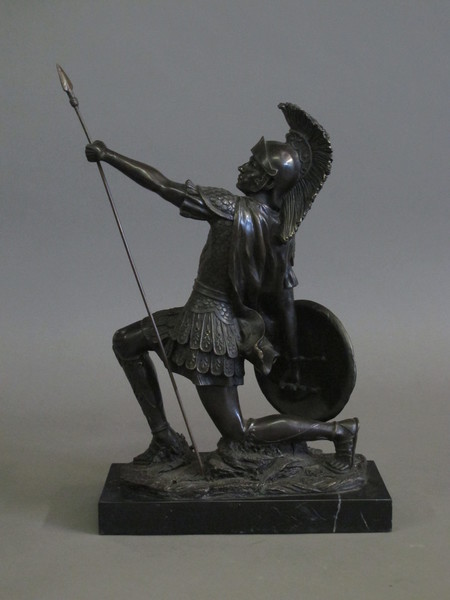White progressive racial masochism is nothing new.
In the last couple of weeks we have witnessed people, most of them white, kneeling before black protestors and activists as a supposed gesture of repentance for their crimes of “white privilege” and tolerating “systemic racism.” The kneeling penitents include not just ordinary people, but police officers, National Guardsmen, and, in a shocking self-debasement of the world’s greatest democratic republic, a gaggle of House Representatives adorned with “culturally appropriated” African kente cloth scarves.
White progressive racial masochism is nothing new; Tom Wolfe skewered it brilliantly nearly a half century ago in essays like “Mau-Mauing the Flak-Catchers.” But the current manifestation is more significant and dangerous. It has taken place amidst violent widespread rioting and looting and assaults, and so these acts of kneeling are a form of tribute exacted by the sheer power of destruction wrought by the rioters and their “peaceful” abettors. As such, they undermine the very foundation of citizen self-rule and political freedom: Government by laws, offices, and free deliberation rather than by the whims and failings of one man; and by accountability to the sovereign people and their laws, instead of submission to violent coercion.
Kneeling specifically appears in Greek literature as an emblem of political slavery that follows an absence of rule by law and accountability. In the Histories, Herodotus’s narrative of the Persian wars continually contrasts the free, self-ruling Greek with the slavish, unfree Persians. One cultural practice in particular epitomized for the Greeks the political enslavement of the Persians who were ruled by the quasi-divine Great King Xerxes bestowed with absolute power over the lives and property of his subjects. Hence the law that anytime someone came into the presence of the King, he had to kneel before him, then bend over and kiss the ground as an act of submission. The Greek word for this was proskunesis, an act of “obeisance” suitable only for acknowledging the gods.
Herodotus illustrates this principle when two Spartan ambassadors meet with Xerxes and the King’s guards try to physically force them to bow down. The Spartans resisted and said that “even if the guards were to hurl them headlong down on the ground, they would never do such a thing, for it was not the Greek way to prostrate oneself before another human being.” This episode follows a conversation with their Persian escort Hydarnes, who asked the Spartans why they did not submit to the King and become rich as he was. They replied that he knew only half of the question: “Although you know what it’s like to be a slave, you have never experienced freedom.”Read the rest from Bruce Thornton HERE.
If you like what you see, please "Like" us on Facebook either here or here. Please follow us on Twitter here.



1 comment:
Post a Comment